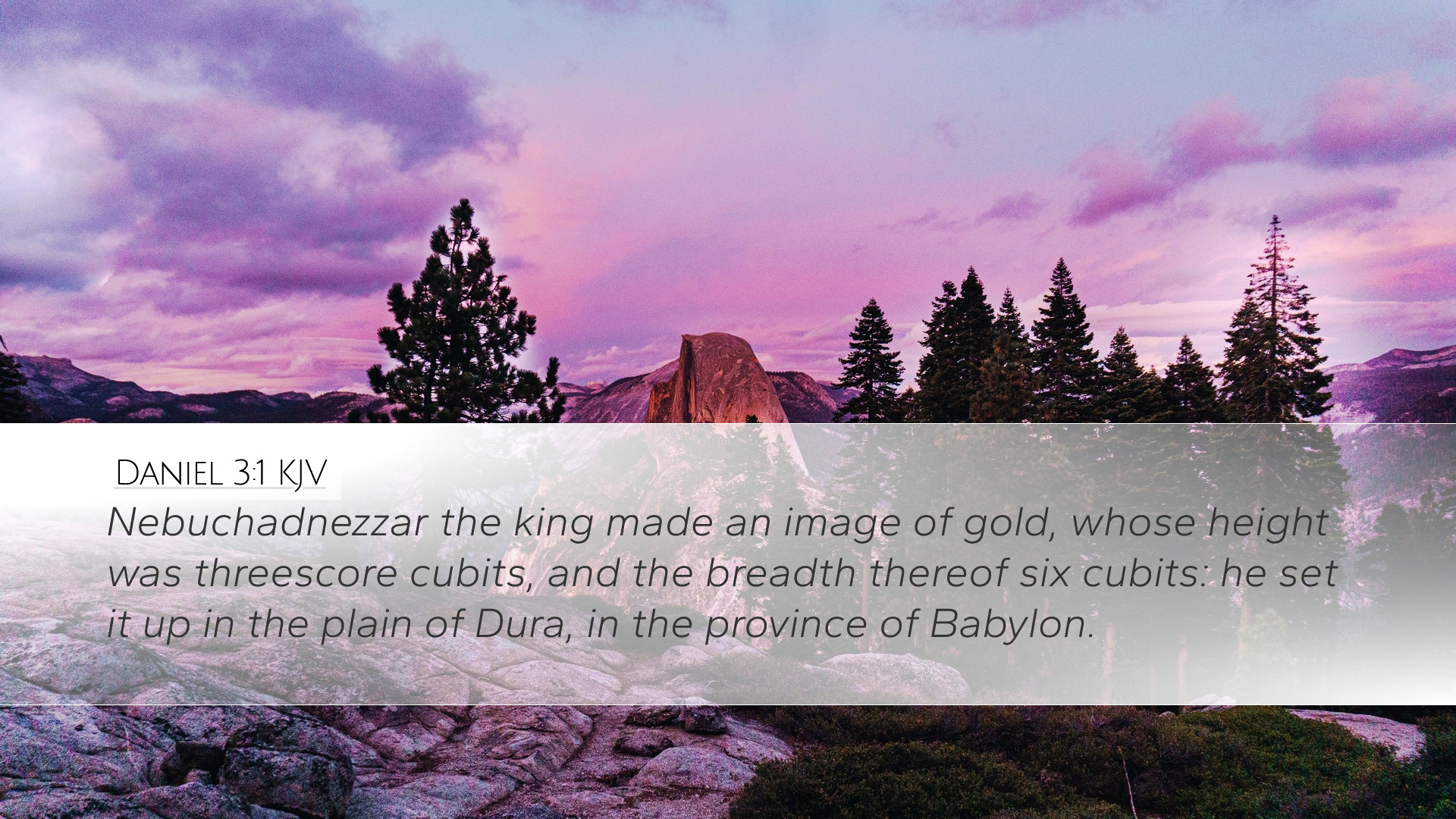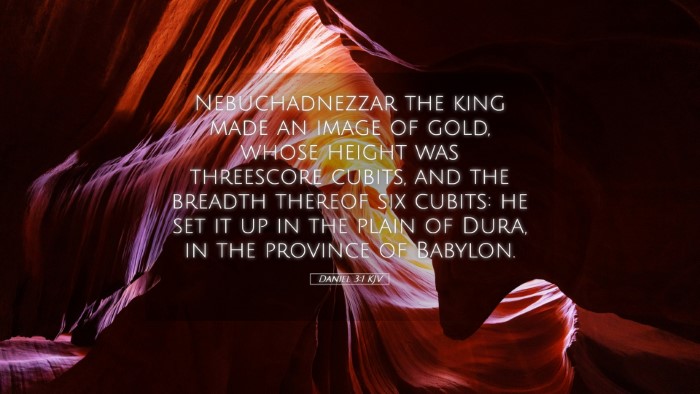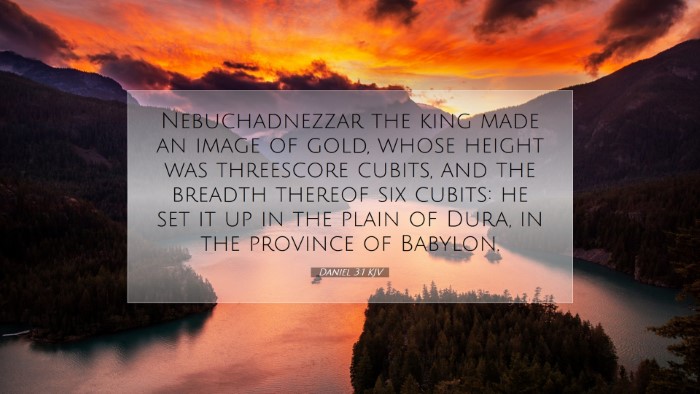Commentary on Daniel 3:1
Verse Context: Daniel 3:1 states, "King Nebuchadnezzar made an image of gold, whose height was threescore cubits and the breadth thereof six cubits: he set it up in the plain of Dura, in the province of Babylon." This verse introduces a pivotal moment in the narrative of the Book of Daniel, featuring elements of divine sovereignty, human pride, and the nature of true worship.
Overview of the Commentary
This commentary synthesizes insights from various public domain commentaries to provide a comprehensive understanding of Daniel 3:1. Attention is given to the historical context, theological implications, and practical applications of the text to inform pastors, students, and scholars alike.
Historical Context
Matthew Henry's Perspective: Henry notes that Nebuchadnezzar’s construction of the golden image likely reflects his desire for unity in his vast empire. Many conquered peoples, including the Jews, were expected to conform to Babylonian religious practices. The establishment of the image symbolized not only the king’s power but also the enforced worship of a rival to Yahweh.
Albert Barnes' Insights: Barnes provides background on the dimensions of the image, indicating that its immense stature exemplifies Nebuchadnezzar’s arrogance. The specific measurements further signify an attempt to assert his authority over the Jewish exiles, mandating them to worship this graven image.
Theological Implications
Adam Clarke's Analysis: Clarke emphasizes the theological significance of this event. The construction of an idol starkly contrasts with the Second Commandment's prohibition against graven images (Exodus 20:4-5). Nebuchadnezzar’s act embodies idolatry and challenges the Israelites' devotion to God. Clarke argues that this episode illustrates a recurring theme of divine sovereignty versus human rebellion.
Faith versus Idolatry: At a deeper level, the command to worship this image serves as a test of faith for the faithful. What does true worship entail, and how do believers respond when faced with the tyranny of idolatrous demands? This question is especially pertinent for pastors and theologians navigating contemporary issues of loyalty and faithfulness.
Character Traits of King Nebuchadnezzar
- Pride: Nebuchadnezzar’s decision to erect an image of gold reveals his pride and desire for self-exaltation. This act is a rejection of divine authority.
- Power: As a ruler, he attempts to consolidate his authority by creating a universal worship practice, asserting his dominance over multiple peoples.
- Indifference to God's Word: Nebuchadnezzar’s rebellion against the Most High God reflects a disregard for the prophecies and messages Daniel conveyed to him about the sovereignty of God.
Lessons for Modern Believers
Facing Modern Idols: Just as Nebuchadnezzar erected a great image, modern society presents numerous idols—materialism, power, and secularism—that challenge the church's allegiance to God. Understanding the importance of spiritual discernment is vital for believers today.
Courage in Faith: The narrative depicted in this verse and the ensuing chapters calls for believers to stand firm in their faith amid cultural pressures to conform. The examples set by Shadrach, Meshach, and Abednego serve as a model for unwavering faith in the face of persecution.
Conclusion
Daniel 3:1 serves as a critical junction in understanding the dynamics of faith amid opposition. The commentary provided aims to deepen the reader’s theological understanding and encourage personal reflection on the nature of worship and the idols that may arise in contemporary life. The insights of Henry, Barnes, and Clarke provide a rich tapestry of understanding that challenges all believers to examine their hearts and ensure their devotion remains solely to God.


